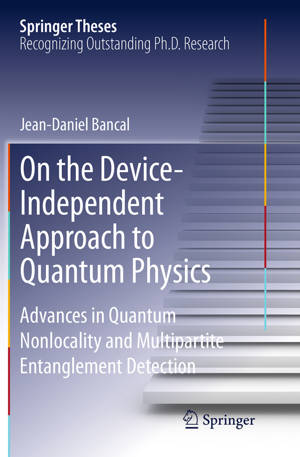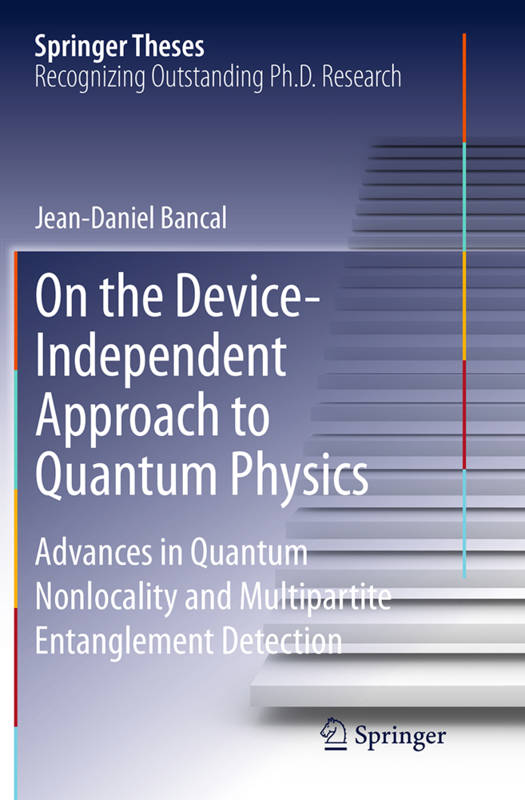
- Afhalen na 1 uur in een winkel met voorraad
- Gratis thuislevering in België vanaf € 30
- Ruim aanbod met 7 miljoen producten
- Afhalen na 1 uur in een winkel met voorraad
- Gratis thuislevering in België vanaf € 30
- Ruim aanbod met 7 miljoen producten
Zoeken
On the Device-Independent Approach to Quantum Physics
Advances in Quantum Nonlocality and Multipartite Entanglement Detection
Jean-Daniel Bancal
€ 105,45
+ 210 punten
Uitvoering
Omschrijving
Quantum physics started in the 1920's with wave mechanics and the wave-particle duality. However, the last 20 years have seen a second quantum revolution, centered around non-locality and quantum correlations between measurement outcomes. The associated key property, entanglement, is recognized today as the signature of quantumness. This second revolution opened the possibility of studying quantum correlations without any assumption on the internal functioning of the measurement apparata, the so-called Device-Independent Approach to Quantum Physics. This thesis explores this new approach using the powerful geometrical tool of polytopes. Emphasis is placed on the study of non-locality in the case of three or more parties, where it is shown that a whole new variety of phenomena appear compared to the bipartite case. Genuine multiparty entanglement is also studied for the first time within the device-independent framework. Finally, these tools are used to answer a long-standing open question: could quantum non-locality be explained by influences that propagate from one party to the others faster than light, but that remain hidden so that one cannot use them to communicate faster than light? This would provide a way around Einstein's notion of action at a distance that would be compatible with relativity. However, the answer is shown to be negative, as such influences could not remain hidden.
Specificaties
Betrokkenen
- Auteur(s):
- Uitgeverij:
Inhoud
- Aantal bladzijden:
- 119
- Taal:
- Engels
- Reeks:
Eigenschappen
- Productcode (EAN):
- 9783319377537
- Verschijningsdatum:
- 27/08/2016
- Uitvoering:
- Paperback
- Formaat:
- Trade paperback (VS)
- Afmetingen:
- 156 mm x 234 mm
- Gewicht:
- 199 g

Alleen bij Standaard Boekhandel
+ 210 punten op je klantenkaart van Standaard Boekhandel
Beoordelingen
We publiceren alleen reviews die voldoen aan de voorwaarden voor reviews. Bekijk onze voorwaarden voor reviews.











